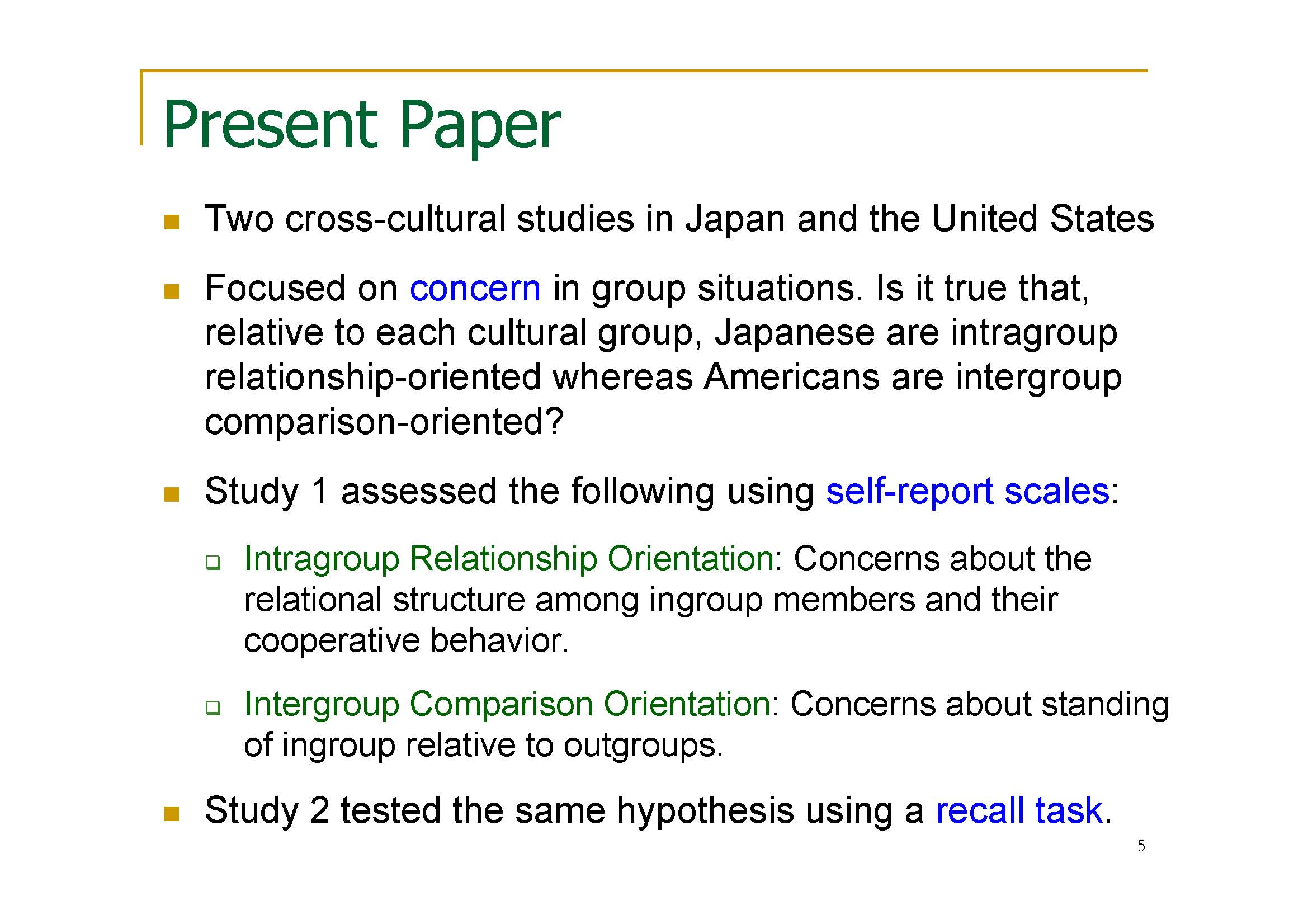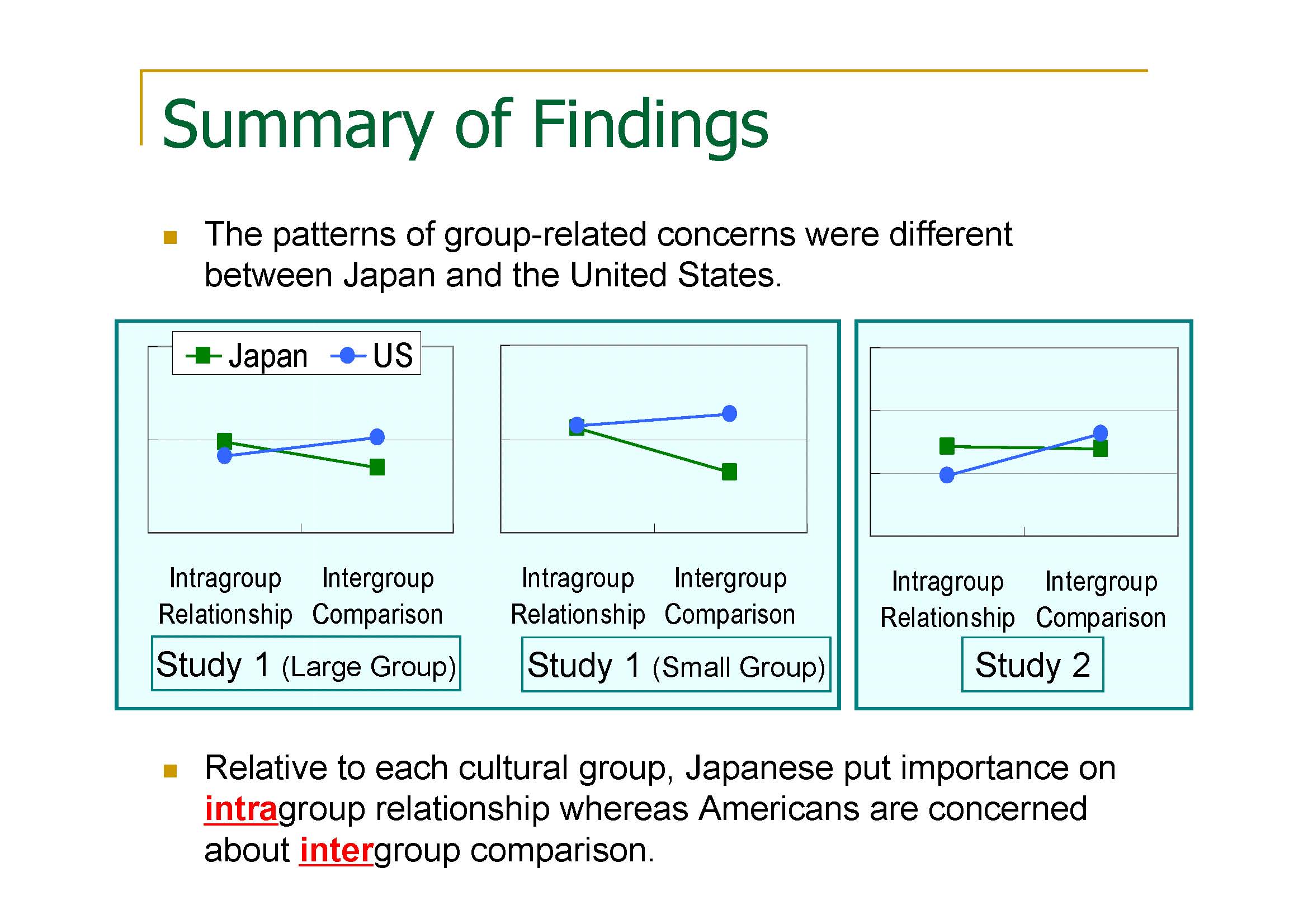

Kosuke Takemura
(Hokkaido University)
Tow types of collectivism: Intragroup relationship orientation in Japan
and intergroup comparison orientation in the United States


Two studies tested and confirmed the hypothesis that, while both being highly group-oriented, Japanese and Americans put importance on different aspects of groups: intragroup relationships and intergroup comparison. A recent review of empirical evidence disconfirmed the widely-held view that North Americans are less collectivistic than East Asians (Oyserman, Coon & Kemmelmeier, 2002). However, Yuki and colleagues (e.g. Brewer & Yuki, in press; Yuki, 2003) have proposed that the bases/motivations for group behaviors predominantly differ between cultures: North Americans put greater importance on acquiring and maintaining higher ingroup status relative to outgroups, whereas East Asians emphasize maintaining good relationships among ingroup members. Results of present studies supported the hypothesis. In a questionnaire survey (Study 1), Americans reported stronger subjective importance on intergroup status differences than on intragroup relationships, whereas Japanese reported the opposite pattern. Study 2, a recall task experiment, showed that Americans recalled intergroup status difference information more accurately than intragroup relationship information that they had seen previously, whereas there was no difference in the recall rate for the two kinds of information for Japanese. A new interpretation of the findings from the perspective of individual adaptation toward different types of social environments (Yamagishi, Jin, & Kiyonari, 1999) will be presented.